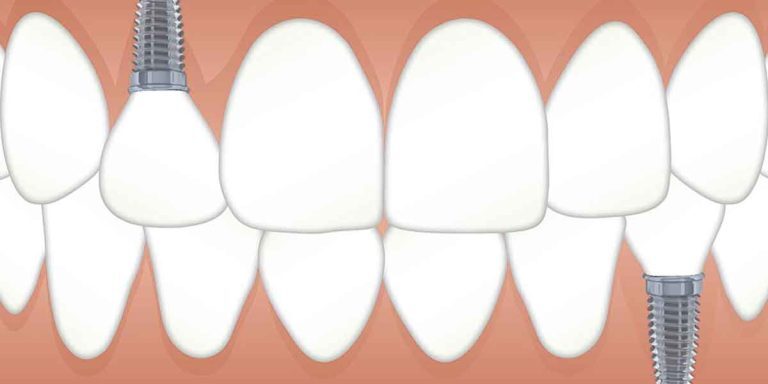Author: nearmedental
Even after the advances in dental care, millions of people lose teeth due to periodontal disease, decay, or injuries. Bridges or dentures were earlier for many years the only treatment choices for people who lack teeth. Dental implants, in contrast, are now available.
Below, there are more details regarding dental implants and the procedure followed by many dentists throughout the US, and the procedural benefits for the same.
How Does a Dental Implant Work?
Dental implants are dental roots used to replace missing teeth. Fixed (permanent) or removable substitute teeth created to match implants support your original teeth.
Some Key Benefits of Dental Implants
Here is a list of all the benefits associated with a dental implant:
- Enhanced appearance: Dental implants have the appearance and feel of natural teeth. They are also permanent since they merge with bone.
- Enhanced speech: The teeth of ill-fitting dentures might slip around in the mouth, causing you to stammer or slur your words. Dental implants let you speak without fear of your teeth falling out of place.
- Enhanced comfort: Implants cut the discomfort of removable dentures since they become a part of you.
- Easier eating: Chewing gets more strenuous due to the sliding dentures. Yet, dental implants work the same way as natural teeth, allowing you to consume your favorite foods confidently and pain-free.
- Enhanced self-esteem: Dental implants can help you regain your smile and improve your self-esteem.
- Enhanced oral health: Dissimilar to a tooth-supported bridge, a dental implant does not need to reduce neighboring teeth. As the surrounding teeth are not changed for the implant’s support, most natural teeth get preserved. Thus, this improves your oral health for a more extended period. Individual implants also enhance dental hygiene by offering more accessible access to the teeth.
- Durability: Dental implants are also long-lasting, and they may even last for decades. Many implants may also last for a lifetime with proper care.
- Convenience: Removable dentures are convenient. Dental implants eradicate the embarrassment of removing dentures. They also remove the necessity for sticky adhesives to keep them in place.
What Does a Dental Implant Include?
Constructing a unique treatment plan is the initial stage in the dental implant procedure. The plan manages your unique needs. A team of specialists created it with experience in oral surgery and restorative dental procedures. This multidisciplinary approach ensures that you receive proper care as per the right implant option.
The tooth root implant, a small post of titanium, is then inserted into the bone socket of the lost tooth. The jawbone grows all around implanted metal post as it heals, securing it in the jaw. It might take anything from six to twelve weeks for the body to recuperate.
After the implant has adhered to the jawbone, the dentist adds a small connector post called an abutment to the post for holding the new tooth in place. Next, your dentist imprints your teeth and produces a model to create the new tooth or teeth. It captures all your teeth, their type, as well as their proper arrangement. This model helps to create new teeth. The abutment is then fitted with a crown, which is a substitute tooth.
Some patients may have attachments installed on the implant to support a removable denture instead of one or more separate crowns.
Your dentist will also match the color of your new teeth to your existing ones. The replacement teeth appear, feel, and operate much like your original teeth since the implant gets fixed within the jawbone.
Can Anyone Get Dental Implants?
Anyone healthy enough to have a standard dental extraction or oral surgery can choose a dental implant is required. The patient has to have healthy gums and enough bone to support the implant. They must also agree to maintain good oral hygiene and visit the dentist regularly.
Heavy smokers, those with uncontrolled chronic diseases like diabetes or heart disease, and patients who have had head/neck radiation therapy should first get prior reviewing before this. If you’re considering getting implants, consult your dentist to discover if they’re a good fit for you.
What Is the Pain Level of Dental Implants?
The majority of persons who have had dental implants report that the surgery is relatively painless. It is because the person gets a local anesthetic during the operation. Also, most patients feel that implants are less painful than a tooth extraction. Yet, a few of them feel a mild soreness after a dental implant that you may relieve with over-the-counter pain relievers like Tylenol or Motrin.












